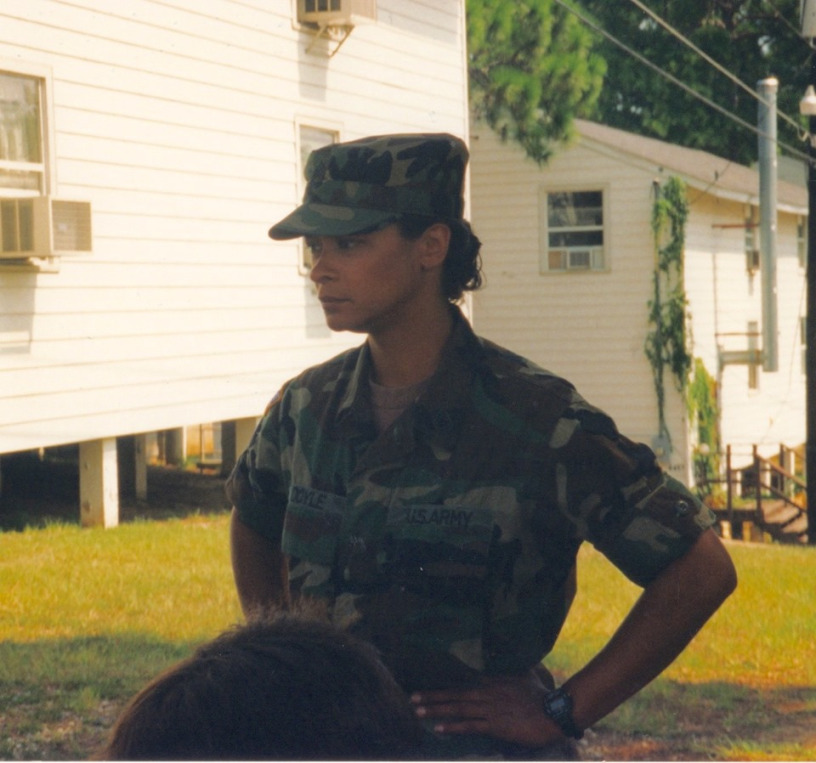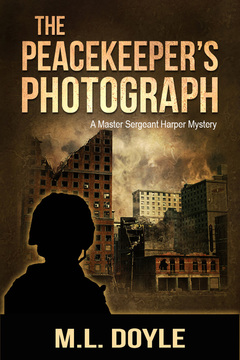
Reviewed by Susanne Aspley
You know it’s a good book when you’re in a real life situation and think about how one of the characters would react. So, I’m sitting in the waiting room at the DMV for hours, and my inner goddess bitch whispers to me, “This is taking way too long, my love. Just slay these stupid humans and step over their warm bodies so you can renew your tabs!”
Yep. That pretty much happened. But hold on, let me explain. It’s because of this book.

In 2017, she co-authored the commemorative coffee table book, “Fort George G Meade – The First 100 Years,” in celebration of the military base’s 100 Anniversary. The book, released in time for the Holidays, was well received locally and appeared under many a Christmas tree that year.
But M.L. Doyle, as she is known in literary circles, is a well-known book author in her own right. Doyle’s her first published book is “I’m Still Standing: From Captured Soldier to Free Citizen,” a memoir she co-authored for and with Spec. Shoshana Johnson.
Read more here:
Brigette McCoy interviews Mary Doyle about her latest book, her love of writing and her military service.

From the black-and-white photo of horse-drawn wagons rolling down Mapes Road to the fisheye image of cyber warfare specialists encircled by computers, telephones and cables, “Fort George G. Meade: The First 100 Years” provides a vivid, detailed and deeply personal history of an installation that has safeguarded the country since World War I.
For more than two years, staff from the Fort Meade Museum and the Garrison’s Public Affairs Office coordinated the production of the book.

Once I started in on author M.L. Doyle’s “Master Sergeant Harper” mystery series, featuring career soldier Lauren Harper, they were so much fun that I devoured one after another, thanks to my insidious enabler, Amazon Prime. Set in far-flung locales like Bosnia, Honduras, England, and Germany, each novel or companion short presents Master Sgt. Lauren Harper with a mystery she must solve, with risk to both her own life and to the lives of other people caught up in the greed and violence of those in positions of either local, or institutional, power.
Writing mysteries set among the day-to-day operations of mostly non-combat, deployed soldiers is a rather brilliant premise by Doyle; when you have a number of often-very-young people interacting with one another (and with a local population) away from home, someone is going to get in trouble. If they are lucky, the trouble is only absurd or inconvenient for everyone involved, but if they aren’t so lucky, there could be a real mess.
